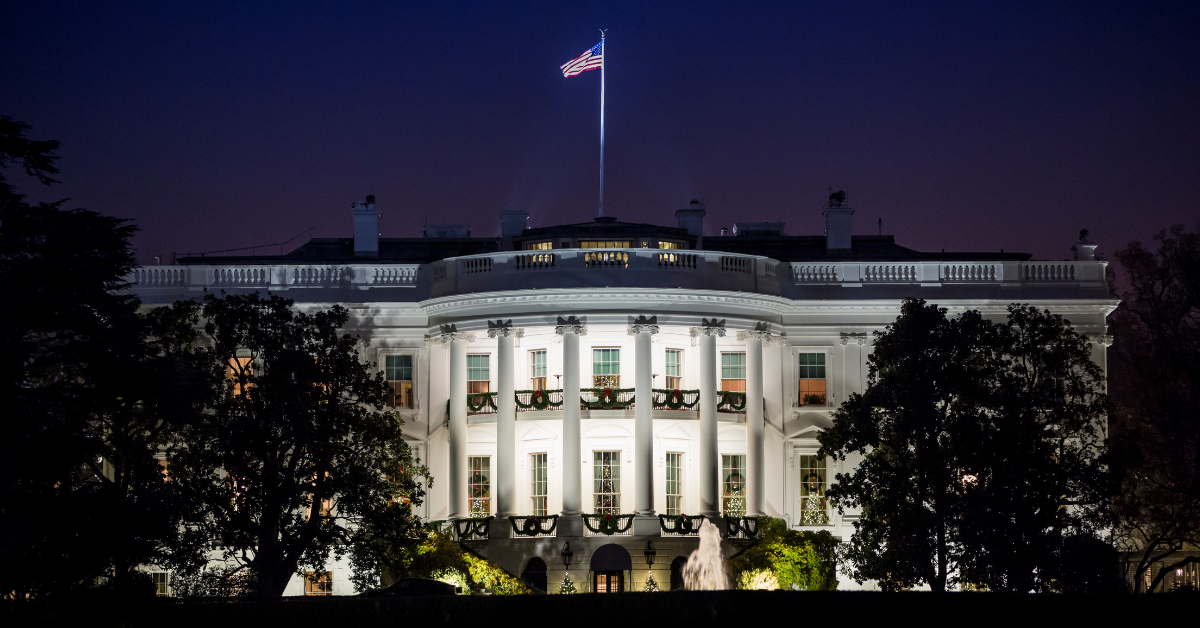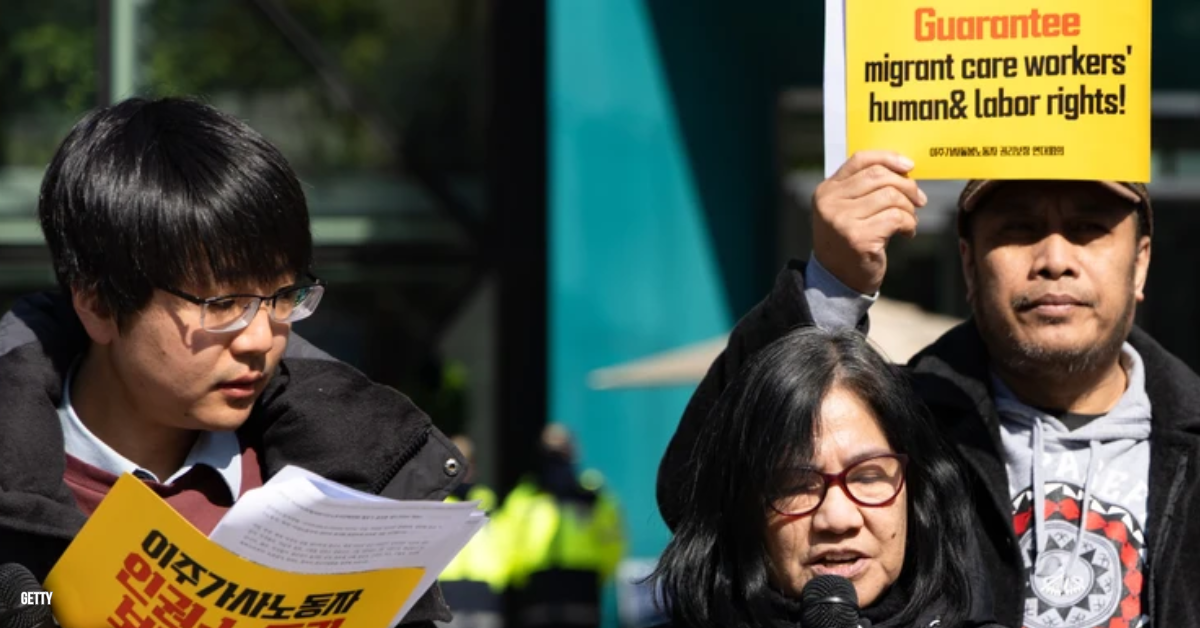NEWS ROUNDUP
Global workers’ rights | Childcare $$$ | Queer history
Tuesday, June 3, 2025
LOCAL

► From My Northwest — Washington child care prices among highest in the nation — The state was ranked the second-worst for infant care center prices in 2024, taking up 50.7% of a single parent’s median income, according to the Child Care Aware (CCA) report. Average annual child care center prices in Washington were roughly double the amount of in-state tuition at a four-year public university, according to the CCA report.
► From the Tacoma News Tribune — Old Tacoma elementary school to become new childcare center, workforce hub — A building that once housed Willard Elementary School and Early Learning Center in Southside Tacoma will become a new childcare and workforce development hub after Washington state contributed $5 million to its acquisition earlier this month. The Pierce County Central Labor Council AFL-CIO and its nonprofit arm, the Pierce County Labor Community Services Agency (PCLCSA), acquired the building at 3201 S. D St. on May 1 from Tacoma Public Schools, staff told The News Tribune on Friday.
► From the Tri-City Herald — Update: Trump administration’s proposed Hanford ’26 budget too low to meet deadlines — The Trump administration has proposed a budget for the Hanford nuclear site for the next fiscal year that appears to maintain funding at current levels, but likely is inadequate to meet legal deadlines. According to the Technical Supplement to the 2026 Budget released Friday evening, the Trump administration proposed a $34 million cut for the Hanford nuclear site for the next fiscal year when it was compared to funding for fiscal 2024.
► From NW Public Broadcasting — Wildfire communication gaps persist for Spanish speakers in Washington. These groups are working to close them — For Maria Blancas, a clinical assistant professor at the University of Washington, the motivation to provide resources in Spanish remains personal. Blancas grew up working in the fields during school and watched her family work under extreme heat conditions during harvest season. Her background led her to study at the UW to learn how to bridge communication between Spanish-speaking communities and the resources they need to stay safe. Blancas says that issues like heat illness become more serious during wildfire season due to increased smoke exposure.
► From the Washington State Standard — Thousands in WA at risk of losing food benefits under GOP bill in Congress — Tens of thousands of low-income Washingtonians could lose federal food assistance if Republicans move ahead with plans in a bill the U.S. House passed last month. If more stringent work requirements in the bill take effect, about 79,000 people in Washington would be at risk of losing their benefits entirely, and 149,000 would be at risk of losing some SNAP benefits, according to the Center on Budget and Policy Priorities, a liberal think tank. The majority of those people live in eastern Washington or the Olympic Peninsula.
AEROSPACE
► From Yahoo News — Editorial: Chicago didn’t ruin Boeing, but the company paid a price for moving out of Seattle. — Chicago gave Boeing’s leadership team the convenient, centralized transportation hub they were missing in the Pacific Northwest…Moving out of Seattle also put almost 2,000 miles between the company’s top brass and its restive unions, which might have been one of the biggest attractions from the corner-office point of view. As it turned out, though, the move seems to have undermined an engineering-friendly culture focused on design, safety and quality. In retrospect, separating from the critical mass of aerospace experts in Seattle isolated the company’s leaders from the heart of their business. Apart from the move to Chicago, the other “X factor” in that transformation was Boeing’s 1997 acquisition of McDonnell Douglas, a company better known for financial engineering than the aerospace kind.
► From Yahoo News — FAA extending program allowing Boeing to perform tasks on agency’s behalf — The move follows months of scrutiny due to concerns about the aviation manufacturer’s safety standards after a midair accident took place on a Boeing 737 Max 9 last year. A door on an Alaska Airlines flight flew open, and a later investigation revealed the incident was caused by the absence of four missing bolts. Since then, whistleblowers have stepped forward alleging the company prioritized speed over quality in production stages.
CONTRACT FIGHTS

► From the New York Times — Video Game Union Reaches Deal on Industry-First Contract at Microsoft — The Communications Workers of America, which represents the workers, announced the contract covering quality assurance employees at ZeniMax. The gaming publisher, which Microsoft bought for $7.5 billion in a deal that closed in 2021, makes blockbuster titles including The Elder Scrolls, Fallout and Doom. The agreement includes a 13.5 percent wage increase for all workers and institutes new minimum pay for each category of jobs, the union said
ORGANIZING
► From Bloomberg Law — Grindr’s Abrupt RTO Mandate Was ‘Union Busting,’ NLRB Alleges — Grindr Inc. changed its remote-work policy “out of the blue,” demanding employees return to the office in retaliation for a union drive after previously telling them they could keep teleworking, US labor board prosecutors told an agency judge. “Grindr told its employees many, many times in spring and summer 2023, that the remote work benefits were secure,” Joseph Meeker, an attorney for the US National Labor Relations Board, said at a May 13 hearing, according to a transcript obtained through a Freedom of Information Act request. “Then employees announced they were unionizing, and only two weeks later, Grindr changed its mind.”
NATIONAL

► From Wired — Trump’s Administration Wants to Erase Queer History. An Unconventional Book Club Is Fighting Back — Hugh Ryan has two things to say. The first will be alarming, but the second might offer some comfort: “The future is so much stupider than I expected, but the past is so much smarter.” Ryan would know. As a queer historian and author, he’s used to talking about the state of queer affairs, past and present, especially with actress, activist, and season 9 Ru Paul’s Drag Race contestant Miss Peppermint. Together, the two are currently running Queer History 101, a monthly book club that’s taking a more expansive approach to history than simply reciting dates or names, at a time when their mission couldn’t be more important.
► From Bloomberg Law — States Take on Mediation Burdens After Trump Cuts Labor Agency — A court order from Chief Judge John McConnell of the US District Court for the District of Rhode Island demanding the reinstatement of workers at the Federal Mediation and Conciliation Service is unlikely to prevent the government from cutting states off from the long-used services, according to labor observers. Michigan, Washington, California, and other states have since taken steps to address the gap left behind by the federal mediators or are altering their labor relations statutes to curb the impact.
POLITICS & POLICY
Federal updates here, local news and deeper dives below:
- Trump administration asks Supreme Court to lift judge’s new block on mass layoffs (The Hill)
- Judge grants preliminary injunction to protect collective bargaining agreement for TSA workers (AP)

► From Reuters — Trump’s sweeping tax-cut bill includes provision to weaken court powers — The one-sentence provision in the 1,100-page bill prevents federal courts, including the Supreme Court, from enforcing contempt orders unless the plaintiffs have posted a monetary bond, which rarely happens in cases against the government…Federal courts have been a major check on Trump in his second term, as plaintiffs in dozens of cases have gotten judges to block White House policies. Bonds were not required in the vast majority of those cases, so if the House bill provision became law, judges would be unable to enforce contempt orders.
► From the Washington Post — Shhh. Republicans are trying to repeal Obamacare again. Sort of. — Congressional Republicans are pursuing changes to the Affordable Care Act that would mean 10.7 million fewer Americans using its insurance marketplaces and Medicaid, a huge reduction that some view as a way to accomplish part of the health-care coverage cancellation that failed in 2017. They’re not branding it a repeal of President Barack Obama’s signature health care law this time around, and this year’s effort wouldn’t erase its marketplaces or Medicaid expansion. Congress tried that the last time President Donald Trump was in office but abandoned it amid an outcry from the health care industry, advocates and voters.
► From Reuters — Trump tax bill poses limited benefits, higher costs for lower-income Americans –U.S. President Donald Trump’s signature tax break on tips promises relatively few upsides for low-income Americans, who face a net loss of income under his massive tax and spending bill in Congress, analysts say. The new tax break is one of several aimed at helping working-class Americans who are a key bloc in Trump’s political coalition. But experts say it would reach only a fraction of the bartenders, hairdressers and other workers who rely on tips. And those who benefit could see gains outweighed by cuts to healthcare and food assistance.
► From NPR — Trump’s budget calls for a 15% funding cut to the Education Department — The Trump administration has released new details of its vision to wind down the U.S. Department of Education. The budget proposal for fiscal year 2026 calls for a 15% funding cut to the department and a handful of changes to key K-12 and higher education programs. Here are five things to know.
► From the New York Times — After Cuts, the National Weather Service Is Hiring Again — After losing nearly 600 employees to layoffs and retirements as part of the Trump administration’s sweeping cuts to the federal work force, the National Weather Service is planning to hire additional staff members to “stabilize” the department, a spokeswoman said. In recent months, the Weather Service said it was preparing for “degraded operations” with fewer meteorologists available to fine-tune forecasts. Some forecasting offices no longer had enough staff members to operate overnight, and others had to curtail the twice-daily launches of weather balloons that collect data on atmospheric conditions that feed into forecast models.
► From Reuters — Trump cuts threaten safety training for America’s most dangerous jobs — By the time Robbie Roberge spotted the fire consuming his boat’s galley last August, he knew he had just minutes to evacuate his beloved Three Girls fishing vessel, named for his daughters. Roberge, a commercial fisherman from South Portland, Maine, learned how to handle such an emergency just three months earlier at a workshop held by Fishing Partnership Support Services, a nonprofit that has trained thousands of East Coast fishermen in safety practices. Such safety trainings – aimed at fishermen, loggers, farmers and other workers in America’s most dangerous jobs – could be scaled back or wound down entirely as soon as July, according to Reuters interviews with a dozen health and safety experts and organizations, as a result of President Donald Trump’s drive to slash the size and cost of the federal government.
► From the New York Times — How Trump’s Regulatory Rollbacks Are Increasing Costs on Americans — DOGE promotes the purported savings on an “Agency Deregulation Leaderboard,” posted this month, where it claims that the Trump administration has saved Americans $29.4 billion as a result of reversing regulations in health insurance, bank fees, appliance efficiency standards and other areas. But many of those regulatory reversals will actually pile more costs on to individual Americans in the form of higher bank fees, electric and water bills, and health insurance payments, according to experts and government analyses. The New York Times examined 10 of the largest claims on the leaderboard and concluded that several did not show evidence of savings to households.
► From NBC News — Trump says U.S. will double steel tariffs to 50% — Trump is visiting U.S. Steel after indicating last week that he will clear a controversial merger with Japan’s Nippon. Investors and union members are listening for answers from the president on what shape the deal he announced between U.S. Steel and Nippon will take. The United Steelworkers, which originally opposed the deal, has said the union “cannot speculate about the impact” of Trump’s announcement “without more information.” “Our concern remains that Nippon, a foreign corporation with a long and proven track record of violating our trade laws, will further erode domestic steelmaking capacity and jeopardize thousands of good, union jobs,” USW President David McCall said in a statement.
INTERNATIONAL

► From Common Dreams — Report Details Global Deterioration of Workers’ Rights—Including in US Under Trump — A report released Monday by the International Trade Union Confederation, a global network of unions, states that workers’ rights around the world are in “free fall”—including in the United States, where U.S. President Donald Trump has taken “a wrecking ball to the collective labour rights of workers.” The report, titled The 2025 ITUC Global Rights Index, details “a stark and worsening global crisis for workers and unions.” The index, which first began in 2014, is a review of workers’ rights in law and in practice. It ranks countries along a criteria of nearly 100 indicators, such as whether there is a “general prohibition of the right to collective bargaining” or whether “killing or enforced disappearance of trade unionists” take place.
► From the Washington State Standard — European Union AI regulation is both model and warning for U.S. lawmakers, experts say — The EU’s law puts a lot of responsibility on developers of AI, and requires transparency, reporting, testing with third parties and tracking copyright. These are things that AI companies in the U.S. say they do already, Gadinis said. “They all say that they do this to a certain extent,” he said. “But the question is, how expansive these efforts need to be, especially if you need to convince a regulator about it.” AI companies in the U.S. currently self-govern, meaning they test their models for some of the societal and cybersecurity risks currently outlined by many lawmakers. But there’s no universal standard — what one company deems safe may be seen as risky to another, Gadinis said. Universal regulations would create a baseline for introducing new models and features, he said.
The Stand posts links to local, national and international labor news every weekday morning. Subscribe to get daily news in your inbox.





